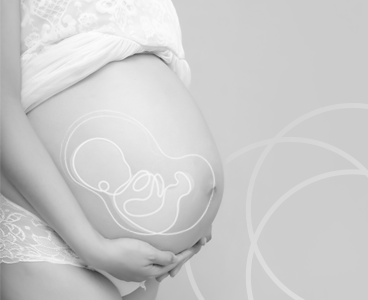Implantation failure and repeat miscarriage are not the same. However, both cases require a multidisciplinary approach, because they include three patients: the woman, the man, and the embryo.
Dr. Mónica Redondo Anía is the greatest expert in recurrent pregnancy loss in Barcelona. He directs the Recurrent Miscarriage Unit of the CEFER Institute. From this Unit, we want to answer the basic questions:
Between 2% – 5% of women will have two or more miscarriages throughout their lives. We do not believe that there is “no cause”. We believe that we can study the factors that can influence and help to avoid the next pregnacy loss.
Probably, in most cases, it is not a single cause that predisposes to abortions, but rather a combination of factors. And this is why, if we take care of every detail, the result is different.
To do this, we try to study, as far as possible, the different factors that come into play: anatomical, genetic, endocrine, autoimmune, infectious, alloimmune and thrombophilic factors.
Once the causes have been ruled out, we rationally try to offer solutions to optimize the process so that pregnancy loss does not repeat itself.
However, after studying all the possible factors that may affect implantation or pregnancy loss, the most important element to achieve a pregnancy is THE EMBRYO and that it is chromosomally normal.
The efforts of Dr. Mónica Redondo are based on DIAGNOSING to BE ABLE TO OFFER A PLAN.


It is important to verify that there are no uterine malformations, fibroids or polyps inside the cavity that hinder implantation and placentation. A hysteroscopy, an endometrial biopsy and imaging studies can help us.
Special mention deserves adenomyosis. Difficult to diagnose, a targeted and specific treatment of this pathology can improve the results.
Sometimes the endometrium is not receptive when the embryo arrives. It does not express the correct genes that allow implantation. Through the ERA Test we can identify it and know the keys to correct this anomaly with a view to an upcoming embryo transfer.
Sometimes the cause is due to the fact that one of the parents has a structural alteration in one of the chromosomes that predisposes to abortion.
At the chromosomal and genetic level, we can study the woman (blood karyotype), the man (karyotype and semen FISH, Meiosis Study) and the embryo if we are in an IVF process (analyzing each embryo before transferring it to the uterus). .
Semen DNA fragmentation is a very simple analysis that allows us to carry out complementary techniques in the search for and selection of the best sperm: Sperm selection by microfluidic system (Chip Fertile) and IMSI help us in the process.
It is important to make a complete evaluation of the hypothalamic-pituitary-thyroid axis in order to carry out a treatment that reestablishes possible hormonal hypo- or hyperfunctions.
On occasions, the presence of biochemical signs that make us suspect Antiphospholipid Syndromes or Mutations at the level of Coagulation Factors, could open a door to specific treatments aimed at compensating for these deficiencies and therefore improving the environment in which the embryo finds itself. reach the uterus.
By studying Natural Killer cells in peripheral blood and endometrium. An increase in Natural Killer cells may be a sign that makes us suspect some immunological hyperreactivity and contributes to being the cause of these abortions and implantation failure because they prevent the normal implantation of the embryo.
Treatment with Immunomodulators, Immunoglobulins or Intralipids in well-selected couples, we believe, contributes to the control of NK, allowing implantation and increasing the probability of reaching term with the pregnancy.
COMPREHENSIVE STUDY IN ONE DAY:
We can organize all the tests of your visit in a single day.
You must come fasting and have to spend at the Clinic between 6 – 8h.
Results visit 4 weeks later. Face-to-face or Videoconference.
Interview with our Psychologist. Emotional Support.
Dr. Redondo will always assess your previous medical history in a personalized way.
Get personalized information on recurrent pregnancy loss, contact us without any commitment.
Gran Vía de les Corts Catalanes, 416A
08015 Barcelona – España
Telf. 93 254 60 70
E-mail: info@icefer.es
Gran Vía de les Corts Catalanes, 416B
08015 Barcelona – España
Telf. 93 240 40 60
E-mail: bancosemen@icefer.es
Governador montcada nº 13, bajos
25002 Lleida – España
Telf. 973 27 30 69
E-mail: lleida@icefer.es

© 2024 Instituto CEFER | Política de cookies | Administrar cookies | Política de privacidad y Aviso legal
| Cookie | Duration | Description |
|---|---|---|
| __cf_bm | This cookie, set by Cloudflare, is used to support Cloudflare Bot Management. | |
| __hssc | HubSpot sets this cookie to keep track of sessions and to determine if HubSpot should increment the session number and timestamps in the __hstc cookie. | |
| __hssrc | This cookie is set by Hubspot whenever it changes the session cookie. The __hssrc cookie set to 1 indicates that the user has restarted the browser, and if the cookie does not exist, it is assumed to be a new session. | |
| cookielawinfo-checkbox-advertisement | Set by the GDPR Cookie Consent plugin, this cookie records the user consent for the cookies in the "Advertisement" category. | |
| cookielawinfo-checkbox-analytics | Set by the GDPR Cookie Consent plugin, this cookie records the user consent for the cookies in the "Analytics" category. | |
| cookielawinfo-checkbox-functional | The GDPR Cookie Consent plugin sets the cookie to record the user consent for the cookies in the category "Functional". | |
| cookielawinfo-checkbox-necessary | Set by the GDPR Cookie Consent plugin, this cookie records the user consent for the cookies in the "Necessary" category. | |
| cookielawinfo-checkbox-others | Set by the GDPR Cookie Consent plugin, this cookie stores user consent for cookies in the category "Others". | |
| cookielawinfo-checkbox-performance | Set by the GDPR Cookie Consent plugin, this cookie stores the user consent for cookies in the category "Performance". | |
| CookieLawInfoConsent | CookieYes sets this cookie to record the default button state of the corresponding category and the status of CCPA. It works only in coordination with the primary cookie. | |
| elementor | The website's WordPress theme uses this cookie. It allows the website owner to implement or change the website's content in real-time. | |
| viewed_cookie_policy | The GDPR Cookie Consent plugin sets the cookie to store whether or not the user has consented to use cookies. It does not store any personal data. |
| Cookie | Duration | Description |
|---|---|---|
| wp-wpml_current_language | WordPress multilingual plugin sets this cookie to store the current language/language settings. |
| Cookie | Duration | Description |
|---|---|---|
| __hstc | Hubspot set this main cookie for tracking visitors. It contains the domain, initial timestamp (first visit), last timestamp (last visit), current timestamp (this visit), and session number (increments for each subsequent session). | |
| _fbp | Facebook sets this cookie to display advertisements when either on Facebook or on a digital platform powered by Facebook advertising after visiting the website. | |
| _ga | Google Analytics sets this cookie to calculate visitor, session and campaign data and track site usage for the site's analytics report. The cookie stores information anonymously and assigns a randomly generated number to recognise unique visitors. | |
| _ga_* | Google Analytics sets this cookie to store and count page views. | |
| _gat_UA-* | Google Analytics sets this cookie for user behaviour tracking. | |
| _gcl_au | Google Tag Manager sets the cookie to experiment advertisement efficiency of websites using their services. | |
| _gid | Google Analytics sets this cookie to store information on how visitors use a website while also creating an analytics report of the website's performance. Some of the collected data includes the number of visitors, their source, and the pages they visit anonymously. | |
| CONSENT | YouTube sets this cookie via embedded YouTube videos and registers anonymous statistical data. | |
| hubspotutk | HubSpot sets this cookie to keep track of the visitors to the website. This cookie is passed to HubSpot on form submission and used when deduplicating contacts. |
| Cookie | Duration | Description |
|---|---|---|
| IDE | Google DoubleClick IDE cookies store information about how the user uses the website to present them with relevant ads according to the user profile. | |
| test_cookie | doubleclick.net sets this cookie to determine if the user's browser supports cookies. | |
| VISITOR_INFO1_LIVE | YouTube sets this cookie to measure bandwidth, determining whether the user gets the new or old player interface. | |
| YSC | Youtube sets this cookie to track the views of embedded videos on Youtube pages. | |
| yt-remote-connected-devices | YouTube sets this cookie to store the user's video preferences using embedded YouTube videos. | |
| yt-remote-device-id | YouTube sets this cookie to store the user's video preferences using embedded YouTube videos. | |
| yt.innertube::nextId | YouTube sets this cookie to register a unique ID to store data on what videos from YouTube the user has seen. | |
| yt.innertube::requests | YouTube sets this cookie to register a unique ID to store data on what videos from YouTube the user has seen. |
| Cookie | Duration | Description |
|---|---|---|
| _cfuvid | Description is currently not available. | |
| VISITOR_PRIVACY_METADATA | Description is currently not available. |